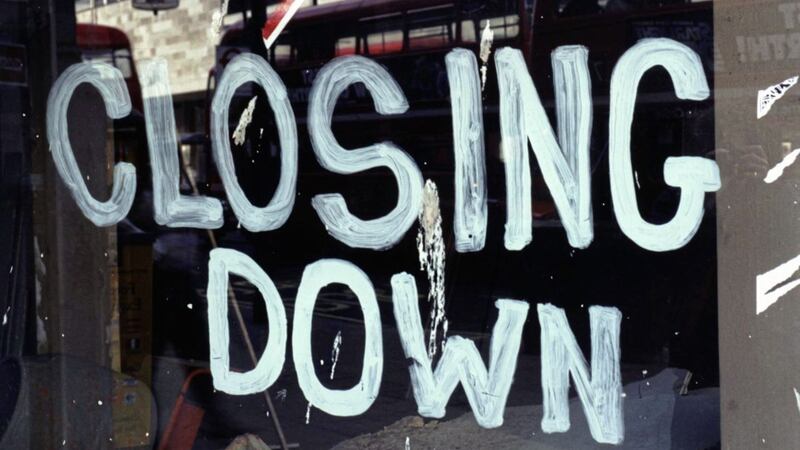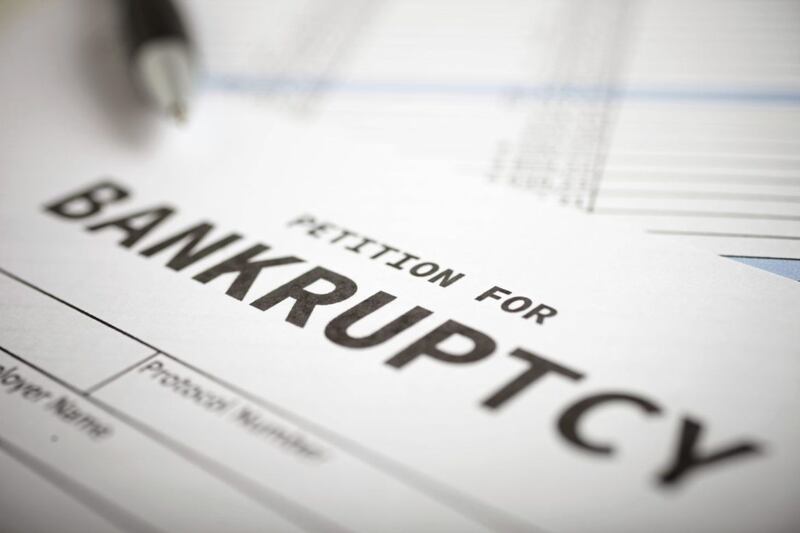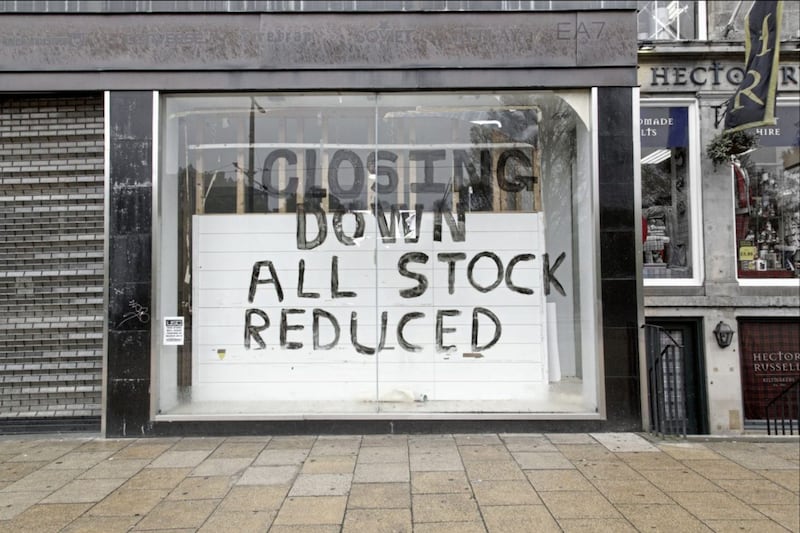THERE were 88 new company insolvencies in Northern Ireland in the April-June quarter, according to latest government figures.
That's 22 up on the previous three-month period, but a significant fall on the same quarter of 2018, when 125 firms went to the wall.
Of the latest failures, 54 were by way of compulsory liquidations, 21 by new creditors' voluntary liquidations, eight by way of a CVA (company voluntary arrangement) while five companies went into administration.
On an individual basis, 758 people got into financial difficulty over the period, with 169 being declared bankrupt (21 fewer than in the same quarter last year), 101 signing debt relief orders and 488 entering IVAs.
But the Insolvency Service, which released the figures, said bankruptcies remain low compared with 2009 to 2014 levels.
However, according to insolvency and restructuring trade body R3, the situation for people's personal finances "is still serious".
The body's president Duncan Swift said bankruptcies "tend to be a reasonably good indicator of serious and unsustainable indebtedness".
R3's latest personal debt snapshot survey carried out in March found four in 10 adults in the UK were at least fairly worried about their current level of debt, and that the same proportion said they sometimes or often struggle to make it to payday.
Alec Pillmoor, personal insolvency partner at RSM, said the latest figures suggest "many people continue to be over-optimistic when it comes to estimating their ability to meet repayment demands as they fall due".
He said: "Furthermore, debt charities have also raised concerns about the rise in sub-prime credit cards being targeted at those with low credit scores.
"These can have relatively high APRs (annual percentage rates) when compared to other short-term credit alternatives and serve to further the plight of those with limited understanding of how easy it is to rack up unsustainable debt."
Giving a general note of caution to UK households, he said: "Given the current weakness of the pound and Brexit-related economic uncertainty, many consumers may wish to give closer consideration to their holiday spending this summer to avoid getting into trouble further down the line."
In the UK as a whole, total company insolvencies increased to their highest level in more than five years, up 12 per cent year-on-year in the second quarter to 4,321.
This came after a 15 per cent year-on-year surge in administrations to 400, though the rise in total insolvencies was largely driven by a jump in creditors' voluntary liquidations (CVLs) to 3,040.
The data showed on a quarterly basis, the number of administrations fell 11.4 per cent from a five-year high in the first three months of 2019, though it remained the second highest since 2014.








